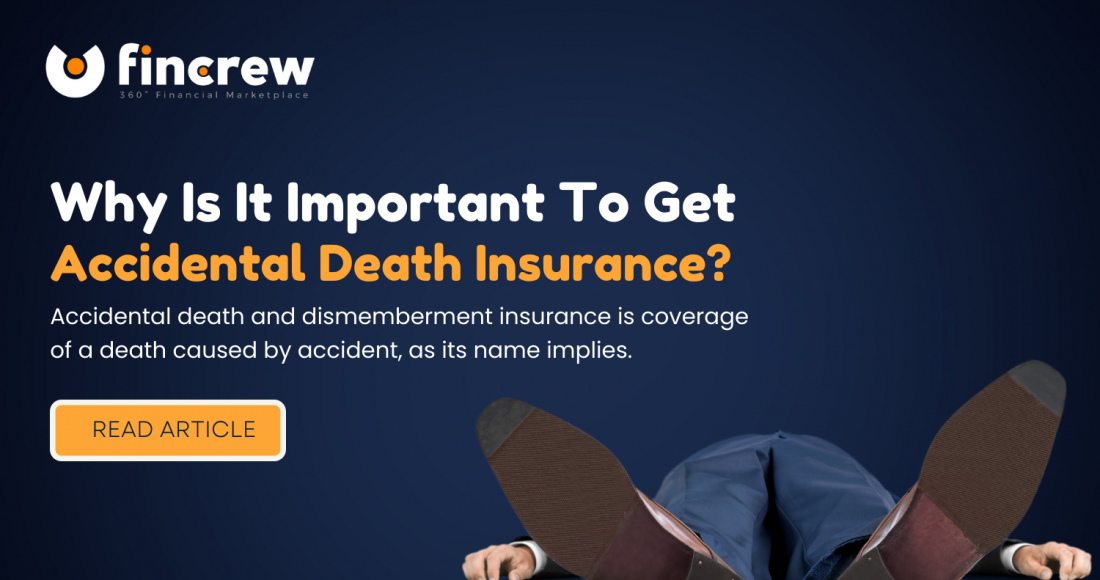According to the World Health Organization, accidents are the third leading cause of death worldwide, after cancer and heart disease. The study found they’re the most common cause of death among adults from 25 to 44. Therefore, it makes sense to have an insurance policy that covers accidental deaths. It is for this reason that there is accidental death and dismemberment insurance (AD&D). However, as with all insurance products, it’s essential to understand what it covers and why it’s necessary to purchase it.
What Is Accidental Death And Dismemberment Insurance?
Accidental death and dismemberment insurance is coverage of a death caused by accident, as its name implies. Generally, it also pays if you lose a limb, your sight, hearing or your ability to speak after an accident. In the worst-case scenario or death, the beneficiary named on your policy generally receives a lump-sum payment in an accident. In the event of an injury, you may be eligible to accept what is called living benefits, and what you receive depends on the type of injury. For example, you might be covered for 50% of the coverage amount you purchase if you lose one item – say, a hand, foot, or sight in your one eye – and 100% if you lose two or more things. In addition, policies often cover 50 per cent to 100 per cent of the benefit amount in the case of paralysis. Depending on the insurance company or the employer offering AD&D insurance, you could receive different coverage amounts. Prospective buyers need to read the policy terms carefully due to coverage limitations. In general, AD&D insurance has limited coverage and covers unlikely events. Additionally, it is only supplemental insurance and cannot replace term life insurance.
What Does AD&D Insurance Cover?
It will cover deaths and injuries from accidents; however, natural causes of death and illnesses will not. It does not include heart attacks or strokes. It is typical for insurance policies to cover the expenses of death or injury caused by accidents at work, home and the road. Furthermore, if you die from an accident involving public transportation, such as a bus, train or aeroplane, the payout will be double or triple your base coverage. An accident-related death does not have to occur for it to be covered. It will usually be covered if it occurs within a specific time frame, such as within a few months. In the policy, you will find the rules.
Do AD&D Insurance Policies Provide Additional Benefits?
When you are wearing a seatbelt during an accident that causes injury or death, some insurance companies may pay you an additional benefit. Some other benefits may also be available to assist children in paying for college. For a surviving spouse, counselling, legal advice, and financial planning services can also be beneficial. Depending on the insurer, these options may differ.
What’s Not Covered By AD&D Insurance?
In determining what constitutes an accident, insurance companies take into account many factors. In some cases, the definition of an accident may be subjective. There is a long list of situations in which policies would not cover death or injury. These exclusions can vary from one insurance company to another. The following are exclusions in an accidental death insurance policy:
- An injury incurred before coverage began
- Death due to an illness, including mental illness
- Damages caused by suicide or self-infliction
- Overdose of drugs
- Drunk driving-related deaths or injuries
- A person who voluntarily inhales gas or takes poison
- Committing a crime that results in death or injury
- Injuries or deaths due to violent riots or war
- Injuries suffered while serving in the military
- Death or serious injury from car racing, flying a plane, playing professional sports, skydiving, or scuba diving
Why Accidental Death Insurance Is Important?
As a result of accidental death, the surviving loved ones are devastated emotionally and financially as they suddenly lose income. Having an AD&D policy’s death benefit can ease the pain of that burden. Most insurance policies have death benefits equal to or even more significant than the amounts offered by traditional approaches. In addition to the death benefit provided by conventional life insurance policies on the insured, AD&D policies provide additional death benefits because the loss of income will carry forward. It is referred to as double indemnity because its value usually doubles due to this extra benefit.






